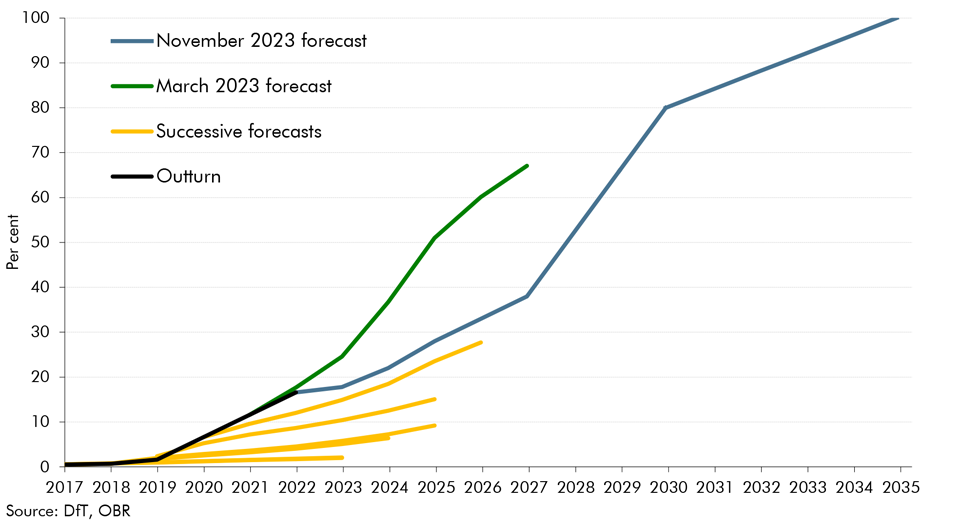The Office for Budget Responsibility (OBR) has slashed expected electric vehicle (EV) registrations in the UK by almost half.
In its ‘Economic and Fiscal Outlook’, published to coincide with the Autumn Statement, the OBR says that it now expects EVs to account for 18% of sales, down from 25%, in 2023, and has almost cut registrations in half, from 67% to 38%, in 2027.
The OBR explains that in the absence of low cost EVs, the steep sales growth of the past years, boosted by (usually high-income) early adopters, is expected to slow.
EVs have lower running costs for consumers who can charge vehicles at home, it says. However, the cost advantage of EVs charged away from home is significantly less and can become negative, and the availability of public charging points seems to be a concern for many drivers.
Moreover, petrol and diesel prices have declined from the spike in 2022, due to a combination of both wholesale price falls and fuel duty cuts, though are still high relative to the past, it says.

The main policy driver for EV uptake is now the Zero Emission Vehicle (ZEV) mandate which takes effect in January 2024.
The Department for Transport (DfT) confirmed in September that the mandate, will require more than a fifth (22%) of cars and 10% of vans sold by manufacturers to be electric, will come into force next year.
The OBR said as a result it had revised its EV assumption to match the path of the mandate over the forecast horizon.
It continued: “We judge sales are unlikely to materially exceed this across the forecast horizon due to flexibilities that allow trading of allowances and borrowing against future allowances in the first three years of the mandate.
“Furthermore, the Government recently announced a five-year delay on the ban of new ICE vehicle sales, from 2030 to 2035, which may result in some consumers delaying a switch to EVs.”





















Login to comment
Comments
No comments have been made yet.